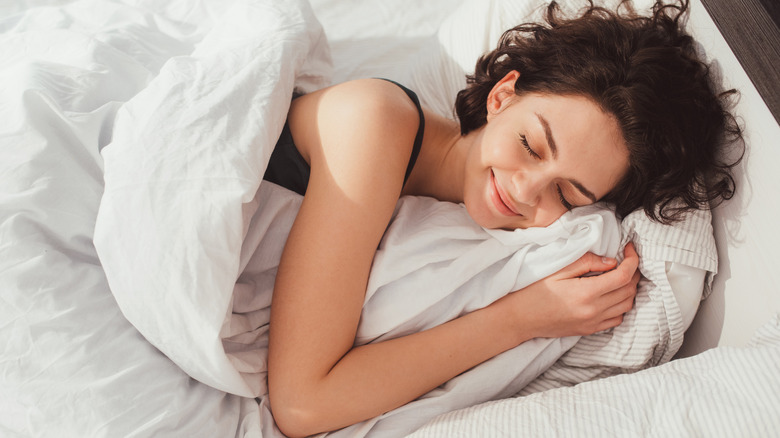How Your Sleep Schedule Could Be Ruining Your Workout
Your daily workout is something that you look forward to each day to enhance your health, to maintain your energy, and to give you that feeling of accomplishment. But exercise and fitness alone doesn't lead to good health. Your entire lifestyle contributes to your overall wellness, and sufficient sleep timed consistently can be as important as your workout routine.
Sleep in general is essential to a healthy lifestyle. According to the Sleep Foundation, sufficient sleep on a regular schedule helps both your body and brain recharge. Your body is run by its own internal clock known as a circadian rhythm. After a good night's sleep, you should be refreshed for the day, but become increasingly tired as the day goes on leading to peak exhaustion at night. Your body's clock knows when it needs to sleep, and if you don't allow it to do so in a healthy way, it can interfere with a variety of daily activities including your beloved workout.
Should you workout with almost no sleep?
If you sleep terribly every once in a while and decide to work out the next day, you'll probably be fine, according to CNET. But, if your sleep schedule is routinely disturbed and you continue to work out without recharging, you could be in big trouble and feel terrible after a workout rather than energized and ready for more. Sometimes even one bad night of sleep can impact a simple workout in ways that may not be noticeable. A 2009 study published in the European Journal of Applied Physiology found that just one night of inadequate sleep led to lower treadmill endurance the next day.
If you're serious about your workout, you'll also want to be focused on that and not how run down you feel. Medical News Today explained that adequate sleep before your fitness routine leads to better coordination, increased speed, and a greater intensity in your athletic performance. Poor sleep can hinder your workout and also lead to injuries, as sleep helps your body repair muscles you broke down in a previous workout. If you work the same muscles on no sleep, you're more apt to injure them, according to Sleep.org. You might also have a slower physical reaction time when exercising, which can also lead to injury.
How to make sure you get the right sleep for your workout
Sleep.org offered simple lifestyle changes that can improve your sleep habits and, in turn, improve your fitness routine. One thing you should definitely do is avoid caffeine before bed. You may think that you only drink coffee in the morning, but that evening Coke with dinner can keep you awake as much as a cup of joe.
You can also make your bedtime routine and environment calm and relaxing. Avoid devices at night, as the blue light coming from your phone, laptop, tablet, or even the television interferes with your sleep cycle. You may fall asleep fine, but you might not get into the deep sleep that recharges your body best. You can also condition your body to sleep well by creating a consistent bedroom environment. If you consistently sleep in a dark and cooler room, your body understands it's time to rest, leading to a better workout the next day.


